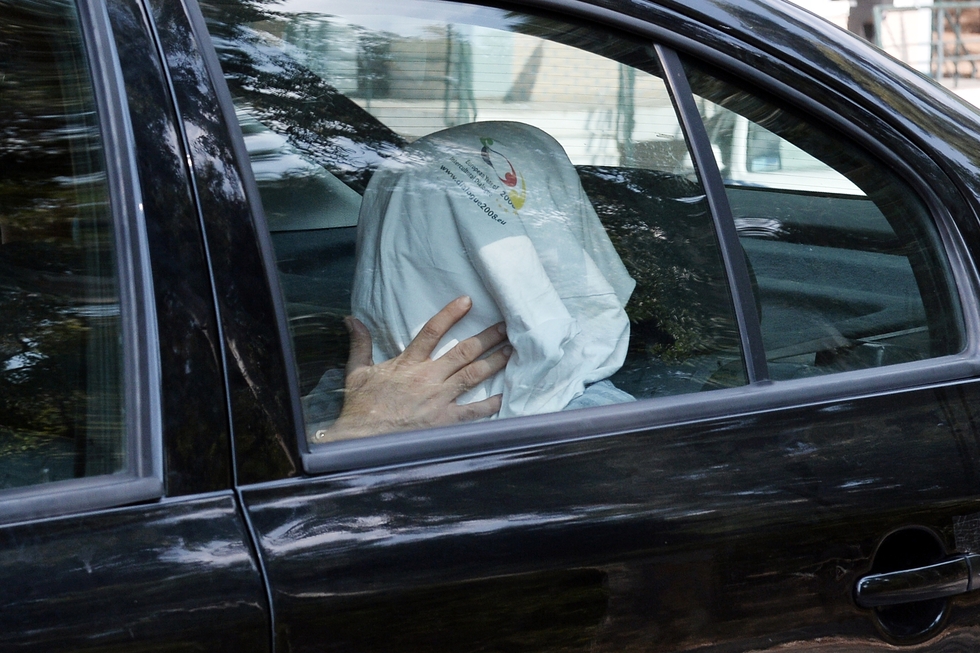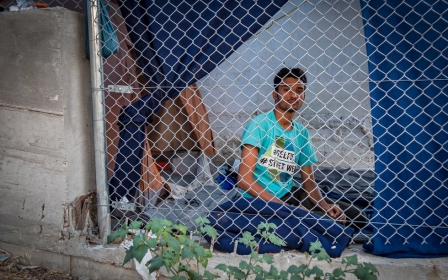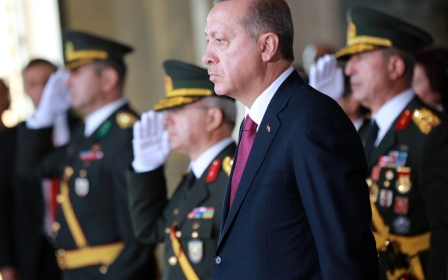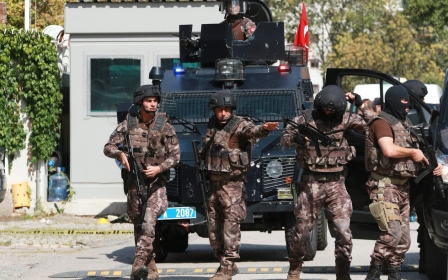Greece rejects Turkish officers' post-coup asylum requests

Seven out of the eight Turkish alleged coup plotters’ applications for asylum in Greece were denied on Tuesday.
According to the Greek Asylum Service, three of the Turkish soldiers were denied asylum last month - one of them because of evidence tying him to the defeated 15 July coup attempt, and two of them for not cooperating with the Greek authorities.
Eleni Petraki, a spokeswoman at the Greek Asylum Service, confirmed to Anadolu Agency the asylum applications of four of the remaining five soldiers had been declined.
“None of them was granted asylum in the first phase, but they can always appeal this decision,” she said.
"The asylum service has so far rejected in the first instance the request by seven members of the Turkish military," their lawyer Stavroula Tomara told AFP.
"We are expecting the decision on the eighth next week," added Tomara, who said a second hearing would follow for those whose asylum claims had been rejected.
In a statement, released by the lawyer, the eight Turkish officers claimed that the Greek asylum service's decision "had not been taken with regard to international and European law, but was dictated by bilateral politics".
The eight said they "came to Greece to save our lives".
“We are surprised by the asylum office’s decision that apart from our fair request for asylum, it also characterises us as terrorists,” the statement said.
“We have not been labelled terrorists even in our own country.”
The Turkish asylum seekers have insisted their lives are in danger despite denying any role in the failed coup.
The two commanders, four captains and two sergeants requested asylum in Greece after landing a military helicopter in the northern city of Alexandroupoli shortly after the attempted putsch in mid-July.
Soon after they arrived, a Greek court sentenced the eight - who face a military trial in their homeland - to suspended two-month prison terms for illegal entry.
The eight said they will not receive a fair trial in Turkey, where the authorities have detained thousands of people over the coup, including top generals.
They will remain in police custody in Greece until their asylum applications are processed.
Rights group Amnesty International has said it has "credible evidence" of the abuse and torture of people detained in sweeping post-coup arrests - something Ankara has denied.
In their statement on Tuesday, the Turkish officers complained that while they are not considered to be terrorists at home, "we are considered terrorists by a Greek public service which is depriving us of international protection".
Ankara has called on Athens to extradite them all, but that request will only be considered by Greek justice once the asylum issue is definitively decided, according to a Greek judicial source.
The case threatens to strain ties between the uneasy NATO allies.
Numerous Turkish army personnel and civil servants fled Turkey following the coup attempt, fearing arrest after President Recep Tayyip Erdogan launched a purge against the putschists.
Tens of thousands of people in the judiciary, civil service, military and education sector have been suspended, while 32,000 suspects have been placed under arrest on charges of links to the Gulen movement.
US-based Muslim cleric Fethullah Gulen is accused of masterminding the July failed coup, and just last week, Turkish authorities suspended more than 12,000 police officers over alleged links to his movement.
New MEE newsletter: Jerusalem Dispatch
Sign up to get the latest insights and analysis on Israel-Palestine, alongside Turkey Unpacked and other MEE newsletters
Middle East Eye delivers independent and unrivalled coverage and analysis of the Middle East, North Africa and beyond. To learn more about republishing this content and the associated fees, please fill out this form. More about MEE can be found here.




